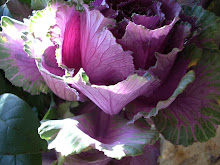
SWEETNESS, ALWAYS by Pablo Neruda
painting, Mary Heebner; translation, Alastair Reid
Why such harsh machinery?
Why, to write down the happenings
and people of every day,
must poems be dressed up in gold,
in old and grim stone?
I prefer verses of felt or feather
which scarcely weigh, soft verses
with the intimacy of beds
where people have loved and dreamed.
I prefer poems stained
by hands and everydayness.
Verses of pastry that melt
into milk and sugar in the mouth,
air and water to drink,
the bites and kisses of love.
I long for eatable sonnets,
poems of flour and honey.
Vanity keeps nudging us
to lift ourselves skyward
or to make deep and useless
tunnels underground.
So we forget the joyous
love-needs of our bodies.
We forget about pastries.
We are not feeding the world.
In Madras a long time since,
I saw a sugary pyramid,
a tower of confectionery—
one level after another,
and in the construction, rubies,
and other blushing delights,
medieval and yellow.
Someone soiled his hands
to cook up so much sweetness.
Brother poets from here
and there, from earth and sky,
from Medellín, from Veracruz,
Abyssinia, Antofagasta,
do you know how to make a honeycomb?
Let’s forget about all that stone.
Let your poetry fill up
the equinoctial pastry shop
our mouths long to devour—
the mouths of all the children
and the poor adults also.
Don’t go on without seeing,
relishing, understanding
so many hearts of sugar.
Don’t be afraid of sweetness.
With us or without us,
sweetness will go on living
and is infinitely alive,
and forever being revived,
for it’s in the mouth,
whether singing or eating,
that sweetness belongs.
DULCE, SIEMPRE
Por qué esas materias tan duras?
Por qué para escribir las cosas
y los hombres de cada día
se visiten los versos con oro,
con Antigua piedra espantosa?
Quiero versos de tela o pluma
que apenas pesan, versos tibios
con la intimidad de las camas
donde la gente amó y soñó.
Quiero poemas mancillados
por las manos y el cada día.
Versos de hojaldre que derritan
leche y azúcar en la boca,
el aire y el agua se beben,
el amor se muerde y se besa,
quiero sonetos comestibles,
poemas de miel y de harina.
La vanidad anda pidiéndonos
que nos elevemos al cielo
o que hagamos frofundos túneles
inútiles bajo la tierra.
Y así olvidamos menesteres
deliciosamente amorosos,
se nos olvidan los pastels,
no damos de comer al mundo.
En Madras hace un tiempo largo
vi una pirámide azucarada,
una torre de dulcería.
Cada unidad sobre otra y otra
y en la arquitectura, rubies,
y otras delicias sonrosadas,
mediovales y amarillas.
Alguien se ensució las manos
amamando tanta dulzura.
Hermanos poetas de aquí,
de allá, de la tierra y del cielo,
de Medellín, de Veracruz,
de Abisinia, de Antofagasta,
con qué se hicieron los panales?
Dejémonos de tanta piedra!
Que tu poesía desborde
la equinoccial pastelería
que quieren devorar nuestras bocas,
todas las bocas de los niños
y todos los pobres adultos.
No sigan solos sin mirar
sin apetecer ni entender
tantos corazones de acúcar.
No tengan miedo a la dulzura.
Sin nosotros o con nosotros
lo dulce seguirá viviendo
y es infinitamente vivo,
eternamente redivivo,
porque en plena boca del hombre
para cantar o para comer
está mituada la dulzura.
**Pablo Neruda (1904-1973) was born in Parral, Chile. In 1971 he was awarded the Nobel Prize for Literature. Alastair Reid, a poet and translator of Latin American writers, is originally from Scotland. He won the PEN Kolovakos Award for Translation in 2001. Mary Heebner is an artist based in Santa Barbara, California. Her work is published alongside Neruda's poems and Reid's translations in Intimacies: Poems of Love by Pablo Neruda.

No comments:
Post a Comment